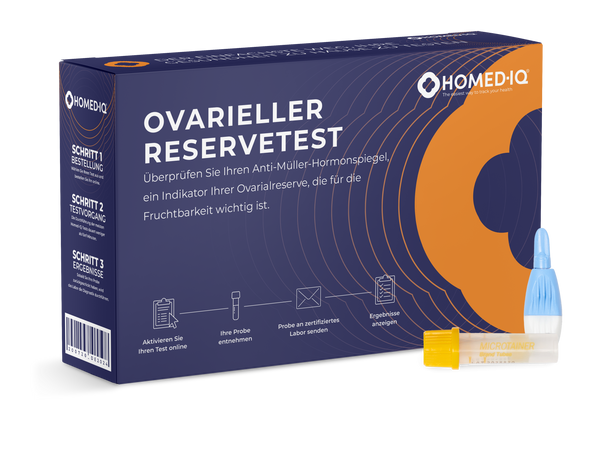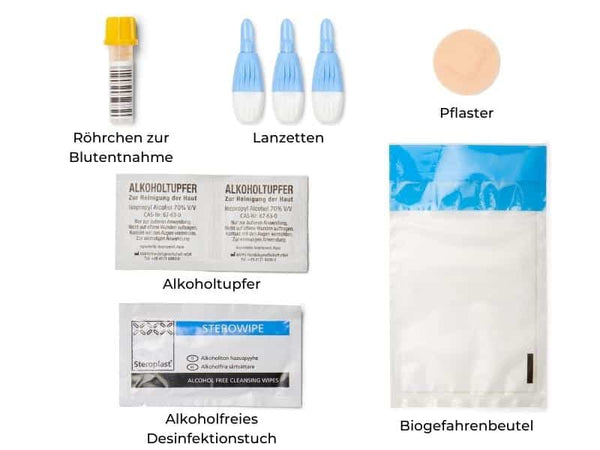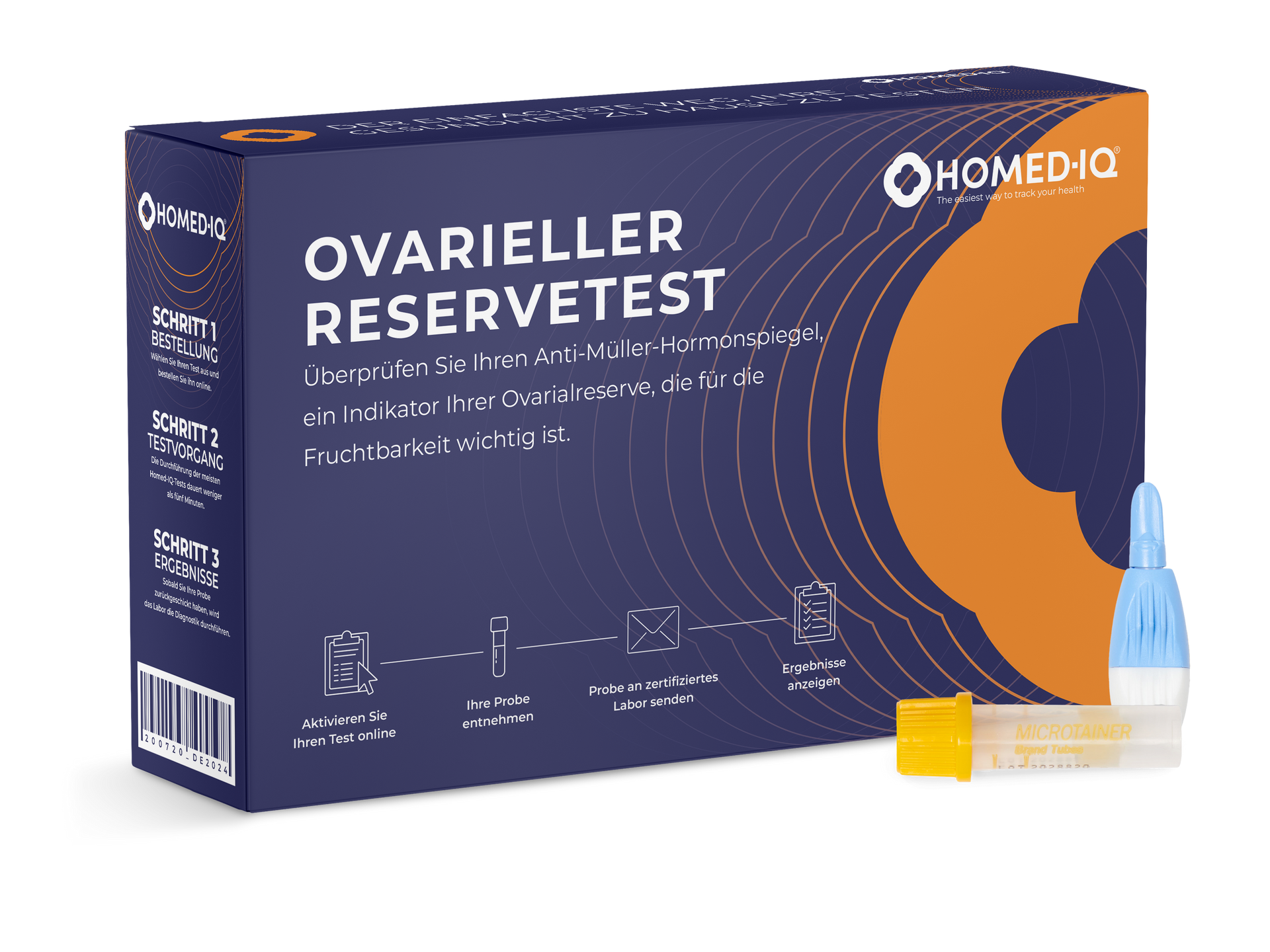Ovarian Reserve Test
FREE SHIPPING TO
Anti-Mullerian Hormone (AMH) is an indicator of the number of eggs available for fertilization in the ovaries, also known as ovarian reserve. The results of this test can provide information about whether the amount of eggs you have for your age is above or below average, an important marker of reproductive health.
Test mode:
Finger Prick test
What is an Ovarian Reserve Test?
This test measures the level of anti-mullerian hormone (AMH) in your blood. The amount of AMH in your blood can provide insight into the risk of early menopause and polycystic ovary syndrome (PCOS). The test requires a finger prick blood sample that you can easily take from home. Your sample will then be examined by a certified laboratory and you will receive the results within a matter of days, complete with an easy-to-understand explanation of AMH and a printable laboratory report that can be brought to your GP.
Can I use this test if I am taking hormonal birth control?
Yes, it is possible to use this test if you are using hormonal birth control such as contraceptive pills, a hormonal intrauterine device (IUD), or birth control implants/injections. Unlike certain other hormone tests for women, the results of the Ovarian Reserve Test are not influenced by the use of hormonal birth control.
Who should use this test?
You should use this test if:
- You are interested in learning more about your ovarian reserve
- You have been considering fertility treatments such as IVF, as low AMH may mean you will not respond to treatment
- You have symptoms of PCOS
Please note that the results of this test alone cannot indicate the exact number of eggs that you have or provide information about your overall fertility. Further testing and consultation with fertility specialists are needed to gain a complete picture of your fertility.
Anti-Mullerian Hormone (AMH)
Anti-Mullerian Hormone (AMH) is a hormone produced in the reproductive organs of males and females. After puberty, the ovaries begin producing AMH, which is responsible for the growth of follicles, or sacs on the ovaries that contain an immature egg. During the menstrual cycle, one follicle will mature and rupture, releasing an egg. This is called ovulation.
AMH levels are related to the number of follicles capable of maturing, providing an indication of the number of eggs available to be fertilized. The higher the AMH level in the blood, the more eggs are available for fertilization. Thus, an AMH test indicates how many potential egg cells a woman has left, also known as ovarian reserve.
As the number of eggs available for fertilization decreases with age, so does AMH. A low AMH level indicates that less potential egg cells are left, which is particularly important when trying to conceive. High AMH can also indicate certain reproductive health conditions like polycystic ovary syndrome (PCOS).
What do the results of this test mean?
This test measures the level of anti-mullerian hormone (AMH) in your blood. The results of this test indicate the amount of eggs available to be fertilized for pregnancy. This is also known as ovarian reserve.
A low AMH level can indicate that there are fewer available eggs for fertilization. But this value alone is not enough to predict the chance of pregnancy. Other factors, such as the quality of the egg cells, fallopian tubes, or the partner’s sperm, are also important. Low AMH indicates a lower ovarian reserve, but does not mean you are infertile, or will have problems getting pregnant naturally. If you have regular periods and are ovulating, it is still possible to get pregnant with low AMH levels. If your AMH is low, discuss your test results with your doctor.
It is also important to note that high AMH can indicate certain health conditions such as polycystic ovary syndrome (PCOS). If your AMH is high, consult your doctor for further testing and advice.
Falsely lowered AMH
While this test can be performed by women using hormonal birth control, research has shown that hormonal contraceptives can temporarily lower AMH. This means that your AMH may be lower while on hormonal birth control but return to normal after you stop using it. If your AMH level is on the lower end of the normal range but you are using birth control, this is no cause for concern.
Fertility problems:
- Having trouble getting pregnant
- Decreased menstrual bleeding
- Irregular menstrual cycles
- Permanent stop to the menstrual cycle
Polycystic Ovary Syndrome (PCOS):
- Irregular periods
- Excess body hair, usually on the face, chest, or buttocks
- Acne or oily skin
- Thinning hair or baldness
How does it work?
Order your test
Fast and discrete letterbox delivery
Activate & take your sample
Video instructions included
Laboratory analysis
ISO - Certified lab network
Receive your results
Easy access through mobile








